Back to the Beginning: Notes from Session 40 of SELF Talks
Talks from the SELF speakers explores questions about origins during a SELF event held in North China Electric Power University on June 21, 2019. The event was organized in partnership with the Youth Innovation Promotion Association of the Chinese Academy of Sciences (CAS).
"Though my soul may set in darkness, it will rise in perfect light; I have loved the stars too fondly to be fearful of the night.” This beautiful line from The Old Astronomer to His Pupil by Sarah Williams, describes the ardent love of a pioneering astronomer when facing darkness and difficulties from the viewpoint of Galileo. The fondness of stars has passed on by generations of modern astronomers. “For us, the late night of others is our daytime, and the midday of others is our midnight.” Fan Zhou, a young astronomer from the National Astronomical Observatory of the CAS, invited the audience to an incredible journey driven by the curiosity of the starry night with his passion and vivid language.

Our planet Earth has been undergoing tremendous changes. How do you understand the laws of crustal movement through the Earth’s lithosphere? What is the fate of our home planet? Wan Bo, professor at the Institute of Geology and Geophysics of the CAS, believes that the fate of the supercontinent follows a general trend under heaven- there is bound to be unification after prolonged division and division after prolonged unification. Wan Bo also uses pictures, videos and other forms make demonstrations for the audience to have immersed sense.
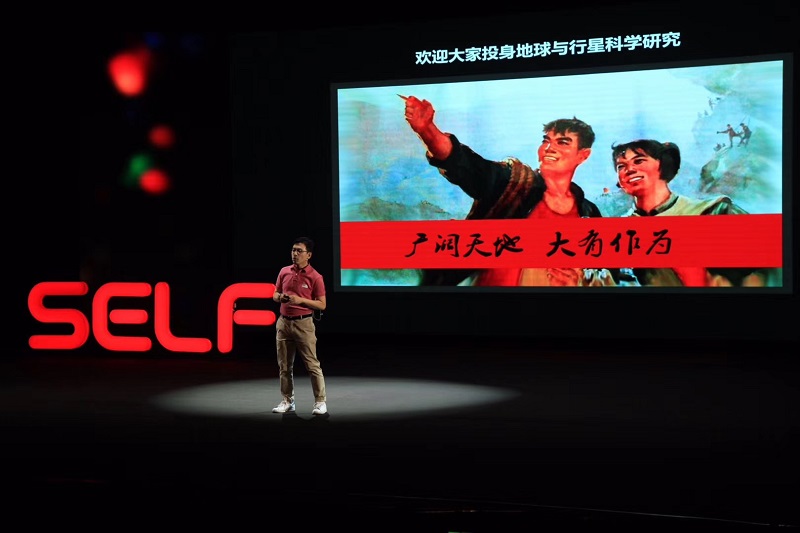
In the past half century, neutrinos, which are regarded as the most widely distributed particles in the universe, have gradually become the focus of physics. Many scientists believe that neutrinos provide important hints to the essence of matter and the mystery of the evolution of the universe. Zhan Liang, a young expert in the field of neutrinos from the Institute of High Energy Physics of the CAS, compared the neutrino to a mysterious invisible person who is ubiquitous but elusive. During the speech, Zhan Liang explained profound theories about the neutrino in simple language.
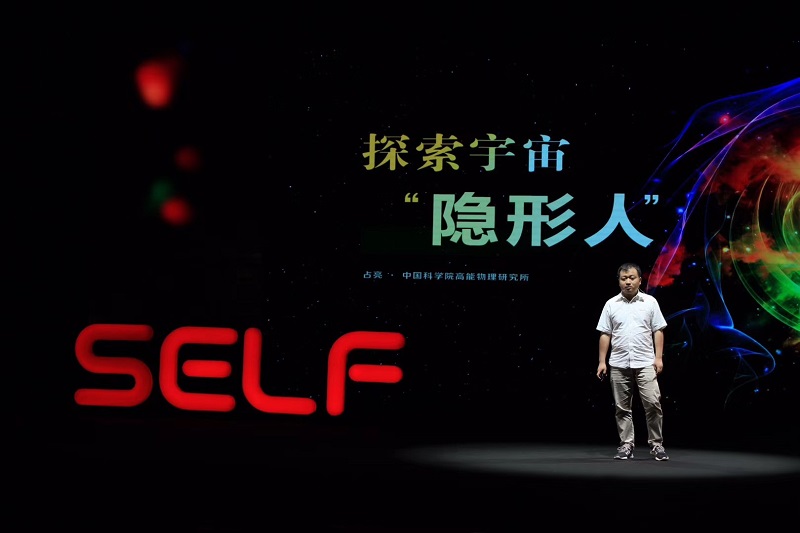
The choice of food plays an important role in the evolution of animals. How can we know what dinosaurs ate in the remote past? Wu Yan, a young paleontologist from the Institute of Vertebrate Paleontology and Paleoanthropology of the CAS, started her speech with this question and provided a hint, “we need to find the answer from their tooth fossils”. Wu Yan uses detailed examples to show the audience how paleontologists explore the origin of life on Earth.
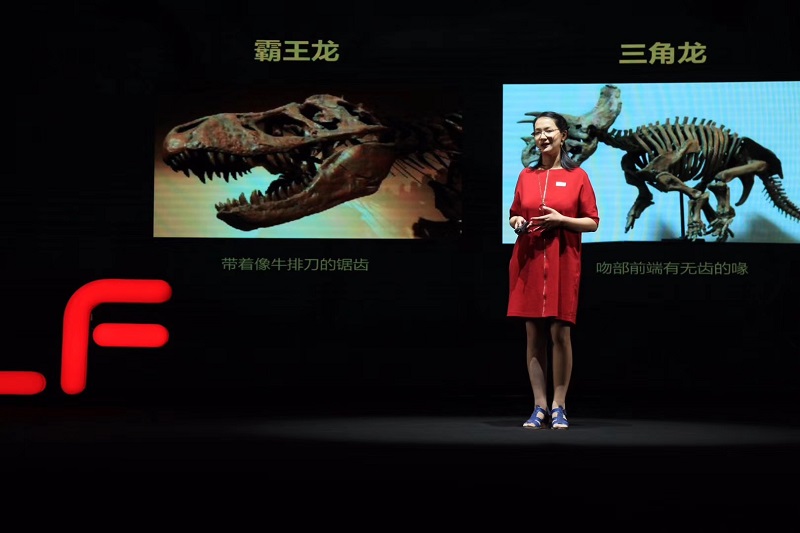
Global warming is a topic which has aroused public attention. Huang Ping, a young expert in the field of climate change from the Institute of Atmospheric Physics of the CAS, uses authentic data to show how scientists study the trend of climate change on Earth and the impacts of human activities. “The Earth is not currently in its hottest period, but the temperature has indeed risen gradually in recent decades.” Huang Ping uses evidence to help the audience understand that “climate change is not a rumor”.
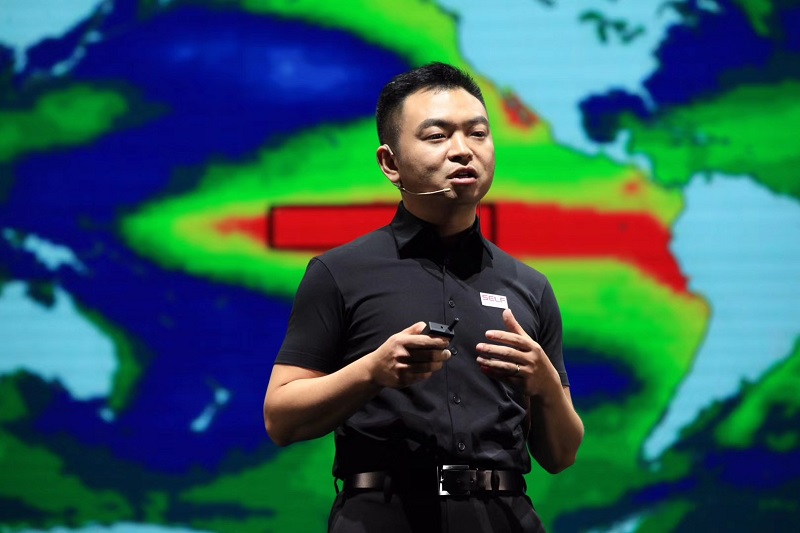
Little ants may have big impact on environment as ecosystem engineers. Zhang Shuang, a young scientist from the Research Center for Eco-Environmental Sciences of the CAS who studies the ecological effects of the interaction of herbivorous insects and plants, discussed with the audience about the role of ants in maintaining ecosystem stability and explained the ecological game theories behind “ants climbing a tree”. His sense of humor as an ecologist provoked the audience to laugh and think.

This session of SELF was moderated by Li Geng, Associate Professor of National Astronomical Observatory of the CAS and President of the Beijing Branch of CAS Youth Innovation Promotion Association.
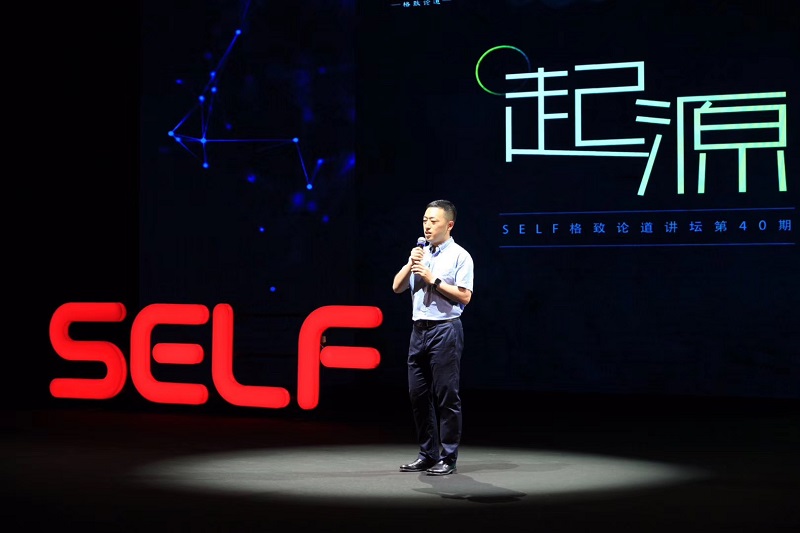
The Science, Education, Life and Future (SELF) Forum, supported by the Computer Network Information Center and the Bureau of Science and Communication of the Chinese Academy of Sciences, aims to discuss the development of science, education, life and future with an investigative spirit keen on the pursuit of knowledge. It encourages free and independent thoughts to break disciplinary boundaries and spread interesting and valuable ideas from all walks of life.
